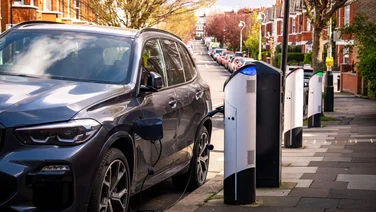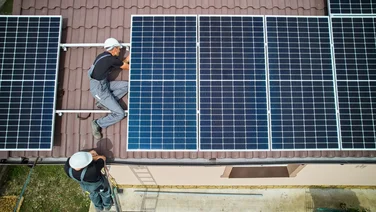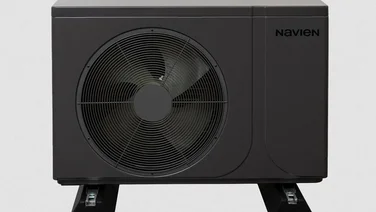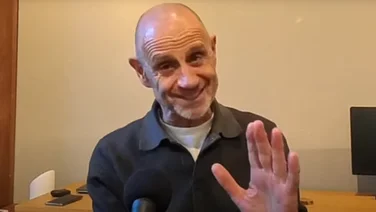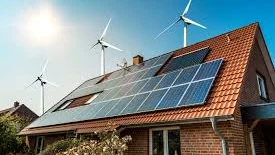Climate justice is a movement fighting for an equitable response to climate change
Its supporters believe climate change disproportionately affects vulnerable groups
Millions of people all over the world believe in climate justice
Climate change is an existential threat to humanity, and the most important fight of our lifetimes.
But what if it was more than simply cutting greenhouse gas emissions? What if we could protect the most vulnerable among us, and create a better world in the process?
Climate justice is a movement pushing for a fairer way of responding to the causes, dangers, and effects of climate change.
In this guide, well explain what it is, why it matters, and how it could affect your life.

What is climate justice?
Climate justice is based on the concept that climate change was mainly brought about by wealthy nations and people, and mainly hurts disadvantaged countries and groups.
This idea has been taken up by a global civil rights movement fighting to redress these historical imbalances by creating an equitable response to climate change.
The cause is intersectional because climate change disproportionately affects a multitude of historically oppressed peoples, including those who suffer because of their gender, age, income status, religion, race, or nationality.
Supporters of climate justice believe that climate change was born from various inequalities, and that its solution must include eradicating these inequalities, so the worlds resources can be consumed for the benefit of everyone.
What are some examples of climate justice?
At its core, climate justice is about equality.
Everyone has the right to a good quality of life, and that principle is behind all these examples.
Government funding for green lifestyles
The upfront cost of solar panels, heat pumps, and electric vehicles is the biggest barrier to entry for millions of people.
Renewable technology and fuels can massively slash household energy bills while also tackling climate change and that benefit should be available to everyone, instead of just the wealthiest people.
By ensuring that everyone can embrace green living, governments can tackle the fundamental inequality in capitalism that sees the rich get richer while the poor get poorer.
Retraining workers in carbon-intensive industries
People who rely on the gas, coal, and oil industries for their livelihoods shouldnt be punished for that fact.
Instead, they should be brought along in the green revolution, by being retrained at no cost to take on one of the millions of renewable energy jobs being created in the coming years.
This would help ensure no-one gets left behind by the switch to green energy, while also having the pleasant side effect of increasing enthusiasm for the transition.
Giving disadvantaged groups a seat at the table
When authorities are making decisions about how to spend their funds or use their other resources, they should consider the effects their choices will have on disadvantaged groups.
The only way to do this effectively is by giving these groups more representation.
Only by allowing these peoples to all have a voice can societies start to fix the inequalities that have plagued the general response to climate change so far.
Nations paying fairly for their contributions to climate change
In the near future, climate change will have disastrous consequences for countries like Tuvalu, the Maldives, and Kiribati, some of which will literally disappear beneath the waves.
These nations dont have the funds or technology to save themselves, and it shouldnt be down to them anyway.
These problems should be thrown at the feet of the countries who are most responsible for bringing us the horrors of climate change, namely the US, China, Russia, Brazil, Indonesia, Germany, India, the UK, Japan, and Canada.
Why does climate justice matter?
Climate justice is the only ethical way to tackle climate change, to ensure we dont repeat the same mistakes and doom millions of people to be disadvantaged forever.
Climate change has largely been brought about by the wealthiest nations and companies, often while exploiting poorer countries and peoples for their resources and labour.
To exacerbate this issue, the most disastrous effects have been felt by disadvantaged nations and groups for example, people of colour, indigenous people, women, and people with disabilities.
As well as poor countries and historically oppressed people, future generations will also suffer from climate change.
Theyll have to bear this burden without benefitting from any of the wealth or prosperity that some have enjoyed during these industrial times.
This is our present, and it will be our endless future unless we act.
How do groups fight for climate justice?
There are many different ways for groups to fight for climate justice.
Here are a few of the most common techniques groups use to make their voices heard for this intersectional movement.
Legal efforts
One route is to use the full power of the law against those seeking to pollute, destroy, or exploit the planet.
Earthjustice is a legal non-profit based in the US thats spent the past few decades fighting for numerous climate justice causes in the courts.
The group has succeeded in getting legislation passed to save species from extinction, ban several toxic pesticides, and close numerous coal plants all because, in its own words, the Earth needs a good lawyer.
Community action
If you unite lots of different community groups, youll be better positioned to help each other and raise the most prominent climate justice issues with the authorities.
Thats the theory behind groups like the South Durban Community Environmental Alliance, a South African non-profit which works for a clean environment and a world with less environmental racism and poverty.
If you come together, youre harder to ignore, and you can combat the most urgent problems troubling your members.
Protests
Protest is a tried and true way of bringing attention to climate justice and the number of people who care about it.
The most famous climate justice protest group is Greta Thunbergs Fridays for Future, which has millions of supporters all over the world ready to march and take a stand for the planet.
Theres nothing like a protest to affect public opinion.
What would climate justice mean for the UK?
Climate justice for the UK would mean cutting our carbon emissions and working to protect everyone from the worst effects of climate change, in a departure from the current system that discriminates against multiple disadvantaged groups.
The money needed to achieve climate justice would be attained progressively to ensure the poorest sections of society are protected, and would guarantee basic needs like energy, food, housing, and transport.
Internally, climate justice would mean taking climate change seriously, and working to protect everyone, especially historically oppressed groups who would otherwise be hit hardest.
Externally, it would mean the UK paying its fair share for the disproportionate amount of pollution its sent into the atmosphere in the past centuries.
This funding would go to helping countries that are most in need, so they can survive, cut their own emissions, and make the transition to green energy.
Can we achieve climate justice?
We can definitely achieve climate justice but only if we act soon and commit enough of our resources to the cause.
Globally, itd take a concerted effort from governments all over the world to fight climate change, spread the costs of doing so, and protect the most vulnerable among us first.
Weve made international agreements to tackle climate change before. This would simply need to be bigger, more equitable, and receive enthusiastic backing from all countries.
A better world is possible we certainly have the money, technology, and communication channels but we need to fight for it.
In the UK, we just need a government that truly cares about tackling climate change and is able to convince the public that climate justice is the best ethical and practical choice.
The first part is up to us. The latter part should be achievable, considering the great majority believe in man-made climate change, and more people than not think the government should be spending more to reduce emissions.
Summary
Theres no moral reason why disadvantaged groups should suffer more than anyone else at the hands of climate change, but thats our current situation.
It doesnt have to be our future, though. The climate justice movement has identified the problems and fights every day to solve them; we just have get behind the cause.
Fully realised climate justice would mean less death, destruction, and suffering, and would ensure we emerge from this global catastrophe with a fairer society in which we use our resources to improve the standard of life across the world to the benefit of everyone.

